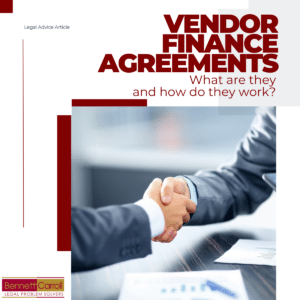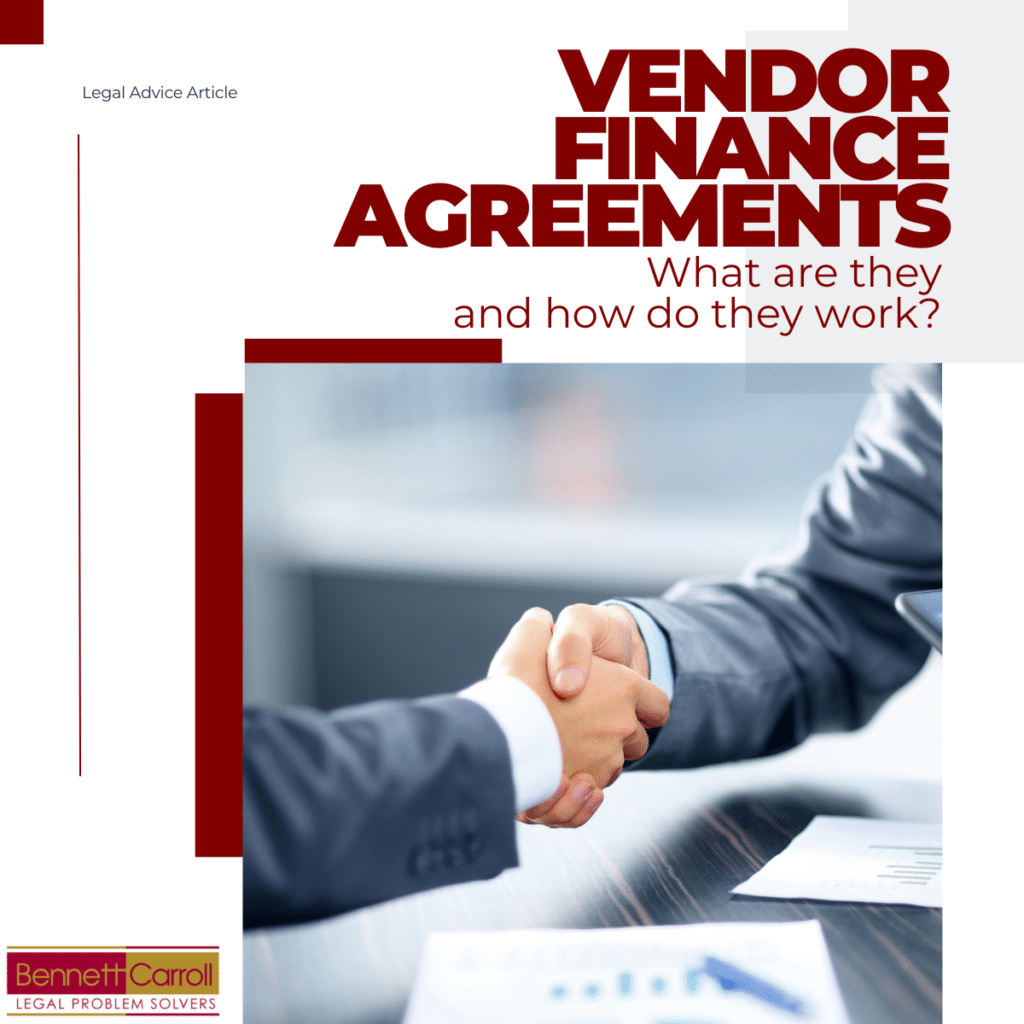Introduction
Vendor finance agreements have gained significant traction in the business world, enabling organisations to overcome financial barriers and seize growth opportunities. These agreements provide a flexible and mutually beneficial arrangement between businesses and their vendors, facilitating the acquisition of goods or services through innovative financing options. In this article, we delve into the fundamentals of vendor finance agreements, exploring their advantages, key components, and considerations for businesses considering such arrangements.
Defining Vendor Finance Agreements
Vendor finance agreements, also known as supplier finance or trade finance agreements, are collaborative arrangements between a buyer (business) and a vendor (supplier) to facilitate the purchase of goods or services on extended credit terms. Instead of relying on traditional banking channels, businesses can leverage the financial capabilities of their vendors to secure the required resources.
Advantages of Vendor Finance Agreements
Improved Cash Flow Management: By extending payment terms, vendor finance agreements provide businesses with enhanced cash flow management. Instead of making upfront payments, organisations can allocate their financial resources strategically, ensuring optimal utilization and freeing up capital for other essential purposes.
Increased Access to Goods and Services: Vendor finance agreements enable businesses to gain access to critical goods or services that may otherwise be beyond their immediate financial reach. This opens up opportunities for growth and expansion without the need for significant upfront investments.
Strengthened Vendor Relationships: Collaborative financing arrangements can strengthen the relationship between the buyer and the vendor. By relying on their vendor’s financial support, businesses can establish a deeper and more mutually beneficial partnership, leading to improved terms, increased trust, and potential cost savings.
Key Components of Vendor Finance Agreements
Payment Terms: Vendor finance agreements typically involve extended payment terms beyond the usual net 30 or net 60 days. The specific terms are negotiated between the buyer and the vendor, considering factors such as the nature of the goods or services, market conditions, and the financial health of the buyer.
Interest Rates and Fees: The interest rates and any associated fees are essential considerations in vendor finance agreements. Buyers should carefully review these terms to ensure they align with their financial objectives and that they are competitive compared to other financing options.
Collateral or Security: Depending on the nature of the agreement, vendors may require collateral or security to mitigate their risk. This could involve the buyer providing assets or guarantees that serve as a form of protection for the vendor in case of default.
Purchase Commitments: Vendor finance agreements may include purchase commitments, where the buyer commits to purchasing a minimum volume or value of goods or services from the vendor. These commitments provide assurances to the vendor and can lead to more favourable financing terms for the buyer.
Considerations for Businesses
Financial Stability: Before entering into a vendor finance agreement, businesses should assess their financial stability and ability to meet the extended payment obligations. Conducting a thorough financial analysis ensures that the agreement aligns with the organisation’s cash flow projections and long-term financial goals.
Vendor Assessment: Evaluating the vendor’s financial strength, reputation, and reliability is crucial. Businesses must assess the vendor’s capacity to provide the required goods or services consistently, especially if the agreement involves a long-term commitment.
Legal Review: Seeking legal advice is essential to ensure that the vendor finance agreement complies with applicable laws and regulations. Legal professionals can help identify potential risks, negotiate favourable terms, and ensure the contract protects the interests of both parties involved.
Conclusion
Vendor finance agreements offer an innovative approach to financing that benefits both buyers and vendors. With improved cash flow management, increased access to goods and services, and strengthened vendor relationships, businesses can unlock growth opportunities that were previously out of reach. By understanding the key components and carefully considering the financial and legal aspects, businesses can make informed decisions and establish fruitful vendor finance agreements that drive their success in today’s competitive market.
Call us on or email and safeguard your interests every step of the way- We are your legal problem solvers.

FAQ 1: What are vendor finance agreements?
Vendor finance agreements are collaborative arrangements between buyers and vendors facilitating the purchase of goods/services on extended credit terms, leveraging vendor financial capabilities instead of traditional banking.
FAQ 2: What are the key considerations for businesses entering vendor finance agreements?
Key considerations include assessing financial stability, vendor reliability, seeking legal review, and reviewing payment terms, interest rates, fees, collateral, and purchase commitments to align with financial objectives and goals.
FAQ 3: How do vendor finance agreements benefit businesses?
Vendor finance agreements provide improved cash flow management, increased access to goods/services, and strengthened vendor relationships, potentially leading to cost savings and favourable terms.
FAQ 4: What are the key components of vendor finance agreements?
Key components include negotiated payment terms, interest rates, fees, collateral/security requirements, and purchase commitments, tailored to the buyer and vendor’s needs.
FAQ 5: How should businesses prepare for vendor finance agreements?
Businesses should assess financial stability, vendor reliability, seek legal advice, and carefully review payment terms, interest rates, fees, collateral, and purchase commitments before entering into agreements.








